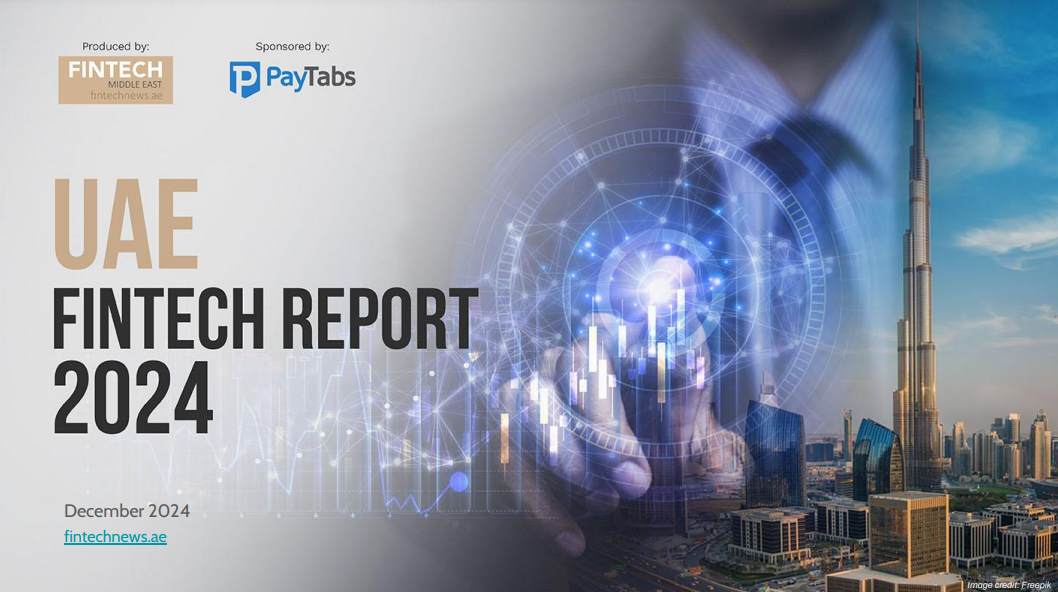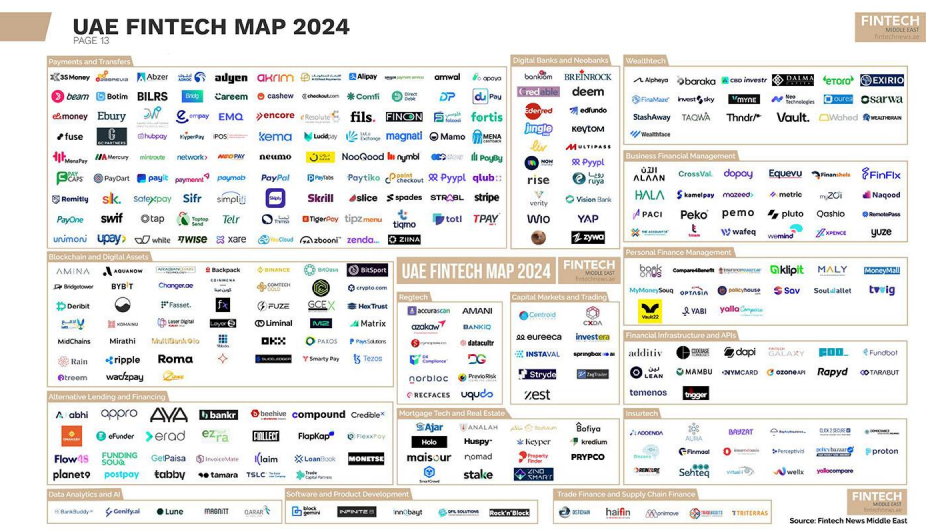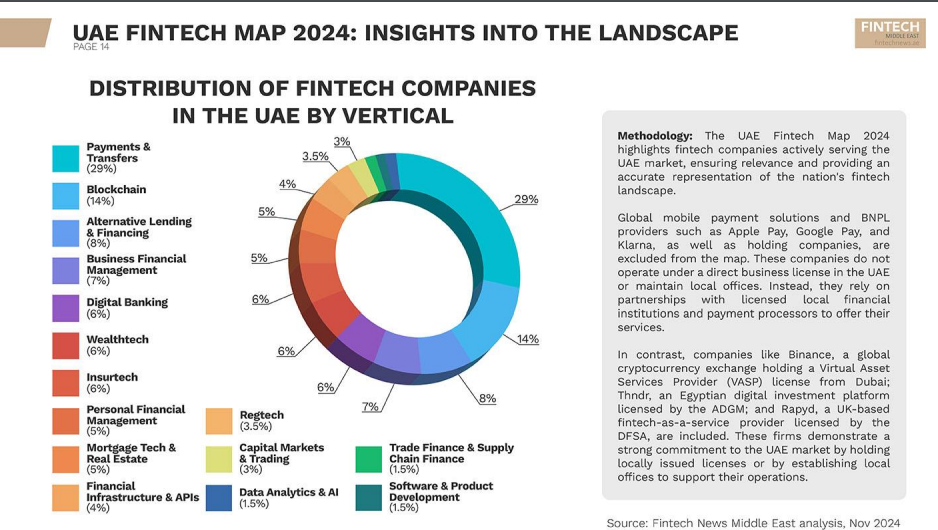
The UAE has always been a pioneer when it comes to innovation, and the fintech industry is no different. As we move into 2024, the country’s financial world is changing faster than ever, thanks to advanced technology, easy digital payments, and exciting blockchain developments. With strong government support, smart regulations, and a growing startup scene, the UAE is quickly becoming a leading fintech hub, not just in the Middle East, but globally. This rapid growth makes it an exciting time for both businesses and consumers looking for innovative financial solutions!
For businesses, this means a wealth of opportunities to streamline operations, boost customer experiences, and offer smarter payment solutions. For consumers, it’s all about convenience, speed, and security when it comes to managing finances. In this blog, we’ll take a deep dive into the most exciting trends in UAE fintech, explore the challenges businesses face, and look ahead at the opportunities that lie in this rapidly growing sector. Let’s explore how the UAE is leading the charge toward a more digital and innovative financial future.
The UAE is rapidly emerging as a global fintech hub, driven by government initiatives and record-breaking investments. This growth reflects the nation’s focus on modernizing financial services and fostering innovation.
Launched in 2023, the Financial Infrastructure Transformation (FIT) Programme has become a cornerstone of the UAE’s fintech success. With nine initiatives covering areas like open finance, CBDCs, and payment innovation, the programme aims to create a strong and competitive financial ecosystem.
The FIT Programme supports the UAE’s broader goals, aligning with the "We the UAE 2031" vision, a ten-year development plan, and the Digital Economy Strategy, which positions the UAE as a global digital hub.
In 2024, fintech dominated venture capital funding in the UAE, securing 32% of total funding (US$225 million) in H1. The UAE also led the MENA region with US$73 million in fintech investments, outperforming Saudi Arabia and Egypt.
Despite a 36% year-over-year decline, the UAE showed resilience with significant funding rounds and mergers and acquisitions (M&A). These highlight the sector’s adaptability and attractiveness to global players.
Abu Dhabi: The Heart of Fintech Innovation:
Abu Dhabi is rapidly becoming a key player in the global fintech scene, driven by state-backed initiatives and a focus on long-term economic growth. With the Abu Dhabi Global Market (ADGM) leading the charge, the emirate offers a robust platform for fintech innovation and financial services development.
The ADGM serves as a prime financial center, attracting businesses focused on banking, capital markets, and wealth management. What makes ADGM stand out? Its emphasis on regulation and innovation, supported by the Financial Services Regulatory Authority (FSRA). The FSRA champions a compliance-first approach, ensuring that fintech companies operate in a safe and controlled environment while fostering innovation.
Key initiatives include:
Abu Dhabi’s fintech ecosystem is thriving, especially in strategic areas like blockchain technology and regtech. The Distributed Ledger Technology (DLT) Foundations Regulations, introduced in 2023, provide a solid foundation for decentralized organizations. Abu Dhabi also partners with Mohamed bin Zayed University of AI, working to integrate artificial intelligence into financial services for improved compliance and efficiency.
Hub71 is another standout feature in Abu Dhabi’s fintech scene, bringing together over 330 startups and 170 partners. It offers support programs and incentives, making it the ideal launchpad for fintech entrepreneurs.
With these cutting-edge resources, Abu Dhabi is cementing itself as a global fintech hub, creating a thriving environment for both local and international innovators.
Dubai’s economic landscape is a testament to its adaptability and vision. Unlike many oil-dependent regions, Dubai’s economy thrives on trade, tourism, real estate, and technology. With less than 1% of its GDP coming from oil, the emirate has truly reinvented itself as a global business hub. This dynamic environment is perfect for entrepreneurs and innovators, offering a business-friendly culture with rapid growth and endless opportunities.
Business culture is fast-paced and responsive, designed to meet the demands of a global market. The emirate actively attracts international businesses by offering tax exemptions, full foreign ownership, and easy access to free zones. Whether you’re a startup or a global giant, Dubai’s entrepreneurial spirit ensures that everyone has a chance to succeed.
Dubai is looking to the future with its Dubai Economic Agenda (D33) and smart city projects that aim to transform the emirate into a global leader in technology and innovation. By focusing on sectors like AI, blockchain, and green tech, Dubai is creating a forward-thinking, sustainable economy that promises a better quality of life for its residents and visitors.
Regulatory environment is designed to foster innovation while maintaining transparency and security. Bodies like the Virtual Assets Regulatory Authority (VARA) and the Dubai Financial Services Authority (DFSA) offer a flexible and up-to-date regulatory framework that aligns with global standards. This approach ensures that businesses can grow and innovate with confidence, knowing that regulations are always evolving to meet new challenges.
Dubai is quickly becoming the go-to destination for fintech companies, especially within the Dubai International Financial Centre (DIFC). Home to over 1,600 active companies, the DIFC’s fintech ecosystem is diverse, international, and constantly growing. The DIFC Fintech Hive, a top fintech accelerator, has helped over 200 startups from around the world, further cementing Dubai’s position as a leader in fintech innovation.
With its entrepreneurial mindset, forward-looking vision, and business-friendly environment, Dubai is a place where new ideas can thrive, and where the future of finance and technology is being shaped every day. Whether you're an investor, entrepreneur, or startup, Dubai has the resources and support you need to grow and succeed in a rapidly changing world.

Fintech innovation is expanding, turning the region into a key hub, with a rapidly growing number of local and international players carving out their niches in the region. As we look at the UAE Fintech Map 2024, it’s clear that the country is at the forefront of the digital finance revolution, with companies offering diverse solutions across mobile payments, digital wallets, investment platforms, and more.
The Fintech Map 2024 isn’t just a list of companies; it’s a detailed snapshot of the vibrant fintech landscape in the UAE. The map highlights companies that are actively contributing to the country’s digital economy, with a clear focus on firms that are either licensed or have a physical presence in the UAE. This ensures that only companies with a real stake in the local market are featured, providing an accurate and up-to-date look at the nation’s fintech ecosystem.
The UAE’s fintech sector is attracting a diverse range of companies, both local and international. From payment gateways and digital wallets to cryptocurrency exchanges and investment platforms, the UAE offers a growing market that’s hungry for innovation and forward-thinking financial solutions.
For businesses looking to enter the UAE market, the UAE Fintech Map 2024 provides a roadmap of key players who are setting the pace for growth and development in the digital finance space.
Whether you’re an entrepreneur, investor, or simply someone interested in the future of finance, the UAE is a hotbed of opportunity and innovation. As the fintech landscape continues to evolve, you can expect to see even more exciting developments in the coming years.
This year’s map highlights a mix of local players and international companies making waves in the UAE. While global mobile payment solutions like Apple Pay, Google Pay, and Klarna are excluded due to their reliance on local partnerships rather than direct business licenses, Several dynamic and licensed entities are leading the charge in the UAE, showcasing their dedication to the market and playing a significant role in its expansion and development.

A massive 61.7% of these companies are based in Dubai, cementing the emirate’s position as the fintech capital of the UAE. With its business-friendly policies, tax exemptions, and access to a global market, Dubai continues to attract fintech entrepreneurs from all over the world.
The payments and transfers vertical still leads the fintech map, making up 29% of the companies, though this share has dipped slightly from 37% in 2021. This shift reflects the sector’s maturity and growing diversif
ication into complex products like APIs, financial infrastructure, and capital markets. These advancements indicate a move toward long-term, high-value opportunities, rather than quick fixes.
Blockchain and digital assets continue to thrive, now accounting for 14% of the map — a significant increase from 12.5% in 2021. It’s a clear sign that the UAE is embracing emerging technologies, with 45 companies already active in this space.
The biggest growth areas? Alternative lending, digital banking, and wealthtech. These verticals saw impressive growth — 80%, 150%, and 111%, respectively — highlighting the increased demand for these services in the UAE. These sectors are becoming more sophisticated, offering customers better access to capital and wealth management options.
What’s evident from this year’s fintech map is the increasing sophistication of the UAE’s fintech ecosystem. While the insurtech vertical has seen a slight decline, overtaken by lending, banking, and wealthtech, the overall trend is clear: the fintech industry in the UAE is maturing, with a greater focus on innovative, long-term solutions.
As more international players flock to the UAE and local startups continue to innovate, the future of fintech in the region looks incredibly bright. The UAE Fintech Map 2024 is not just a list of companies — it’s a snapshot of the future of digital finance, and it’s clear that the UAE is leading the charge. If you’re looking to enter the fintech space, there’s no better place to be than right here in the UAE!
Whether you’re a startup, investor, or fintech enthusiast, keep an eye on the UAE’s fintech landscape — it’s only getting bigger and better.
The UAE is leading the way in the Middle East when it comes to cashless transactions. As we move further into 2024, the nation continues to make strides toward becoming a fully cashless society. Thanks to technological advancements and a growing preference for digital solutions, the shift away from traditional cash payments is clear, and it's happening fast!
According to Mastercard, an impressive 88% of individuals in the UAE have already embraced alternative payment methods. This includes mobile contactless payments (39%), BNPL services (29%), cryptocurrencies (20%), and wearable technology (18%). It's no surprise that people are opting for the convenience of tapping their phones, watches, or cards for payments, making transactions smoother and faster.
Moreover, card transactions saw a major boost in 2023, with total spending on international cards growing by more than 25%. People are shifting from cash to cards, and the trend is undeniable.
The Worldpay data also backs this shift, showin
g that credit cards were the leading payment method for both e-commerce and POS transactions in the UAE. In fact, 37% of all e-commerce transactions and 38% of point-of-sale (POS) transactions were made via credit cards in 2023. Meanwhile, digital wallets accounted for 29% of e-commerce transactions and 22% of POS transactions.
The trend is clear: digital payments are winning over traditional cash. Cash usage has sharply declined — from 67% of POS transactions in 2019 to only 17% in 2023. That's a huge shift in just a few years!
The UAE stands out as the largest adopter of digital wallets in the Middle East and Africa (MEA), with the lowest rate of cash usage. This puts the country ahead of many others when it comes to embracing the convenience and security that digital payments offer.
What’s driving this change? It’s simple: people love the convenience, speed, and security of digital payments. Whether it's paying via a phone, using a credit card, or tapping a smartwatch, the UAE’s digital landscape makes payments quick and hassle-free. And, with 72% of UAE banking customers favoring online payments, it’s clear that the future of money is digital.
As the UAE continues to embrace cashless payments, the shift from physical money to digital options is only going to grow. With government support, business-friendly policies, and a tech-savvy population, the country is well on its way to becoming a global leader in digital finance. So, whether you're shopping online, paying for your coffee, or even transferring money, get ready for a world where cash is no longer king — digital payments are taking the lead!
The move to a cashless future is changing the game, making life simpler, faster, and more secure for everyone. The best part? We’re just getting started!
The UAE is rapidly moving towards a cashless society, with digital payments becoming the go-to method for transactions. Digital wallets are set to grow 23% annually in e-commerce and 17% at POS (Point of Sale) by 2027, surpassing credit cards as the leading payment method.
Account-to-Account (A2A) payments are also on the rise, projected to grow 19% annually through 2027, offering faster and cheaper transactions.
With strong government support for digital payments, the UAE is speeding up its transition to a fully cashless economy, creating exciting opportunities for businesses and consumers alike. The future of payments in the UAE is digital, making transactions quicker, easier, and more secure.
In 2024, the UAE is leading the way in digital banking, with 89% of consumers now using digital-first accounts, showing just how popular digital banking has become. Homegrown solutions are dominating, with 76% of users choosing UAE-based banks like Mashreq Neo, Liv, and YAP. These digital-first brands are changing the way people bank, with mobile apps being the preferred choice for 83% of consumers.
Consumers are also demanding personalized banking experiences, with 87% seeking apps that offer insights into their financial health, and 72% willing to share more personal data for tailored services.
On top of this, the UAE is diving into Open Finance, allowing secure data sharing and enabling new opportunities for innovation. This move is supported by the launch of the Open Finance Regulation, which promises to reshape the country’s financial landscape.
In addition to this, the UAE has introduced a new regulatory sandbox, allowing fintech companies to test their ideas in a safe, controlled environment. This helps businesses experiment with innovative solutions, while regulators assess new trends and ensure the safety of consumers.
Fintech innovation in the UAE continues to capture global attention, establishing the country as a hub for cutting-edge financial technology. As digital banking gains momentum and new regulations fuel growth,the future of the region’s fintech industry looks incredibly bright.
The UAE’s fintech sector in 2024 is experiencing an era of innovation and expansion, driven by the country's commitment to technological advancement and regulatory support. Dubai and Abu Dhabi stand as key fintech hubs, attracting global investments and talent. As digital payments and blockchain technologies continue to evolve, the UAE is laying the foundation for a seamless, transparent, and customer-focused financial ecosystem that empowers businesses and individuals alike to thrive in the digital age